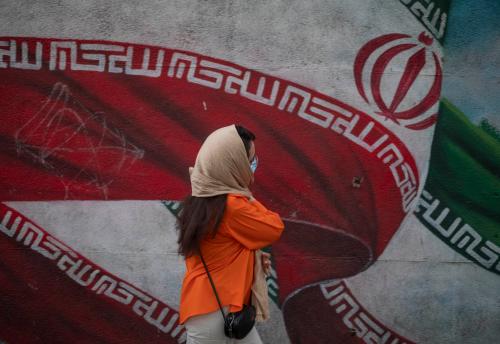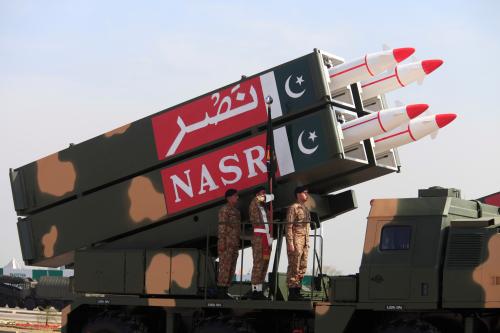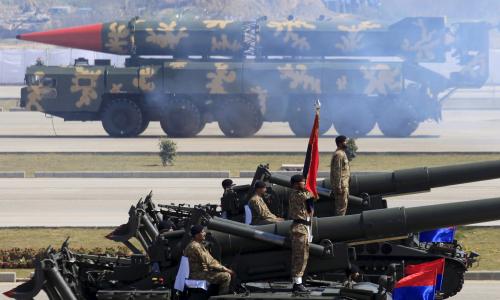No American president—including the current one—has ever made stopping the spread of nuclear weapons a singular, unqualified priority, despite frequent rhetoric to the contrary. Two weeks ago in a major foreign policy address, John Kerry said that preventing nuclear terrorism would be his highest priority as president. Given that statement, you would expect Kerry to have a broad, ambitious agenda on nuclear non-proliferation. And you would be partly right—but also badly disappointed.
Kerry is at his best proposing to apply old ideas to new places and problems, and retuning ideas that are already being used. His plan is strongest in its approach to Cooperative Threat Reduction, also known as Nunn-Lugar, the decade-old set of initiatives that use American dollars and technical expertise to secure vulnerable nuclear material in Russia. As I’ve argued before, these programs need more money; they need pressure and diplomacy to succeed in Russia, where bureaucrats are resisting change; and they need to expand beyond the former Soviet Union to every cooperative state that holds dangerous nuclear materials. Kerry embraces all three of these goals, though absent a plan for engaging China or Pakistan, it’s hard to be totally convinced of his commitment to the third. That said, the Kerry plan would be a major improvement on the Bush administration’s lackadaisical approach to securing nuclear arms.
To forestall the rise of new nuclear powers, Kerry proposes to constrain global access to so-called “fuel-cycle” technologies—uranium enrichment and plutonium reprocessing plants that states need to make nuclear weapons. President Bush has made the same proposals. Unlike the president, though, who called for no new states to enter the fuel-cycle business, Kerry offers up insufficient detail on what, exactly, he would constrain. He is perhaps more realistic than Bush, who has pledged to stop all new enrichment programs, but he is irresponsible to not offer a significant substitute. Perhaps Kerry is holding his cards, anticipating a future need to negotiate new deals. But that should not stop him from laying out an ambitious plan on fuel-cycle technologies, even if he needs to qualify his proposals by noting that they remain malleable.
The most crucial part of Kerry’s plan is his pledge to address the security concerns that cause states to go nuclear. The Bush administration has mostly ignored this aspect of the issue, or has caricatured those who talk about it as appeasers. But Bush’s logic disregards the fact that the United States at the moment only has to confront a small number of nuclear problem cases. Were the security environment to transform, and were dozens of states to conclude that nuclear weapons are necessary, the United States could not forcibly restrain them all. That’s why it’s so important to address the security concerns now of nations that might consider going nuclear in the future.
Yet having hit on this core of the nonproliferation problem, Kerry underwhelms with his response. He proposes a Fissile Material Cutoff Treaty, a traditional arms control instrument that would stop those states that have nuclear weapons from making more nuclear weapons material. The arrangement would do little to directly halt proliferation—as long as states labeled their bomb factories “for peaceful purposes” instead of “for weapons,” they could accumulate bomb material with impunity. Moreover, the plan would do little to change the security environment, since most states calculate their own security based on the situation in their geographic regions, not on the nuclear material production of the great powers.
Kerry also advocates ending American efforts to build new nuclear weapons. There’s nothing wrong with that stance—as I’ve argued earlier, new nuclear weapons hold little use. But as a response to the security pressures driving states to go nuclear, such a halt would be grossly inadequate. If states go nuclear for regional reasons, American restraint will be insufficient to stop them. If this is the most the United States does, it will fail.
If John Kerry is serious about elevating nuclear proliferation to the center of U.S. foreign policy, he needs to anchor his proposals in a serious vision that reassures uncertain states of their security, and thereby prevents them from going nuclear. That doesn’t mean promising them that America will not attack, as some on the left would propose, since most states considering nuclear weapons aren’t scared of America. Instead, it means extending security guarantees and alliances, carefully but deliberately, to provide an alternative to nuclear arms. Such alliances were probably the most effective tool for Cold War nonproliferation—more than any arms control action, they kept most of Europe from going nuclear, and kept much of Asia quiet too. If Kerry is wise, they could do the same again.



Commentary
Op-edPrevent Defense: Kerry’s Non-Proliferation Strategy
June 16, 2004